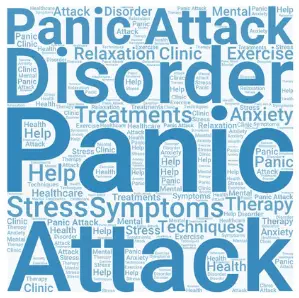Genetic Factors in Panic Attacks
Research has consistently pointed to a hereditary component in panic attacks. Studies reveal a heredity rate of approximately 43% for panic disorder, indicating a significant genetic influence. Genetic links have been identified, including associations with monoamine oxidase A (MAOA), serotonin transporter variants, and hormone gene variations. These findings, though not conclusive, suggest the presence of genetic markers or susceptibility factors that may increase the risk of panic attacks.
Complexity of Genetic Influence
 The genetic contribution to panic attacks is complex. There is evidence of genetic heterogeneity, meaning the involvement of multiple genes and intricate inheritance patterns. Further complicating the matter, research has linked panic disorders with hereditary defects in the innate immune system. However, clear genetic or epigenetic causes remain unidentified, highlighting the need for ongoing research in this domain.
The genetic contribution to panic attacks is complex. There is evidence of genetic heterogeneity, meaning the involvement of multiple genes and intricate inheritance patterns. Further complicating the matter, research has linked panic disorders with hereditary defects in the innate immune system. However, clear genetic or epigenetic causes remain unidentified, highlighting the need for ongoing research in this domain.
Role of Non-Genetic Factors
Panic attacks are not solely the result of genetic factors. They often co-occur with other mental health disorders, such as depression and bipolar disorder, illustrating the influence of non-genetic elements. Environmental factors and lifestyle choices play a substantial role, interacting with genetic predispositions to trigger or worsen panic attacks. Life stressors, for instance, can influence gene methylation patterns and disrupt neurochemical pathways, triggering panic attacks.
Environmental and Lifestyle Influences
The relationship between genetics, environmental factors, and lifestyle is crucial to understanding panic attacks. Environmental stressors can affect genetic variations, especially in genes related to neurotransmission. Gender-specific genetic variations also influence the prevalence and characteristics of panic disorders, adding another layer of complexity.
Insights from Family and Twin Studies
Family and twin studies provide valuable insights into the hereditary nature of panic attacks. These studies estimate the heritability of panic disorder and anxiety disorders at about 43% and 28%, respectively. They have identified several genes potentially involved in panic disorder, such as cholecystokinin receptors and dopamine D1 receptors, reinforcing the genetic component in developing these conditions.
FAQS
Are panic attacks hereditary?
Yes, panic attacks can have a hereditary component. Research suggests that there is a genetic predisposition to developing panic attacks and panic disorder.
How do genetics play a role in panic attacks?
Genetic factors can contribute to the risk of developing panic attacks. Studies have identified specific genes that may be involved in the regulation of neurotransmitters and the stress response, which are associated with panic attacks.
Can environmental factors also lead to panic attacks?
Yes, environmental and lifestyle factors can also contribute to the development of panic attacks. High levels of stress, traumatic events, and substance abuse are some non-genetic factors that can trigger panic attacks.
Can panic attacks be prevented if they run in my family?
It is not possible to completely prevent panic attacks if there is a genetic predisposition, but understanding the risk factors and seeking appropriate treatment can help in managing and reducing the frequency and severity of panic attacks.
Should I be concerned if a family member has panic attacks?
Awareness of the genetic component and potential risks can be helpful. Still, it is essential to remember that not everyone with a family history of panic attacks will develop them. If you are concerned, speaking with a healthcare professional for guidance is advisable.
